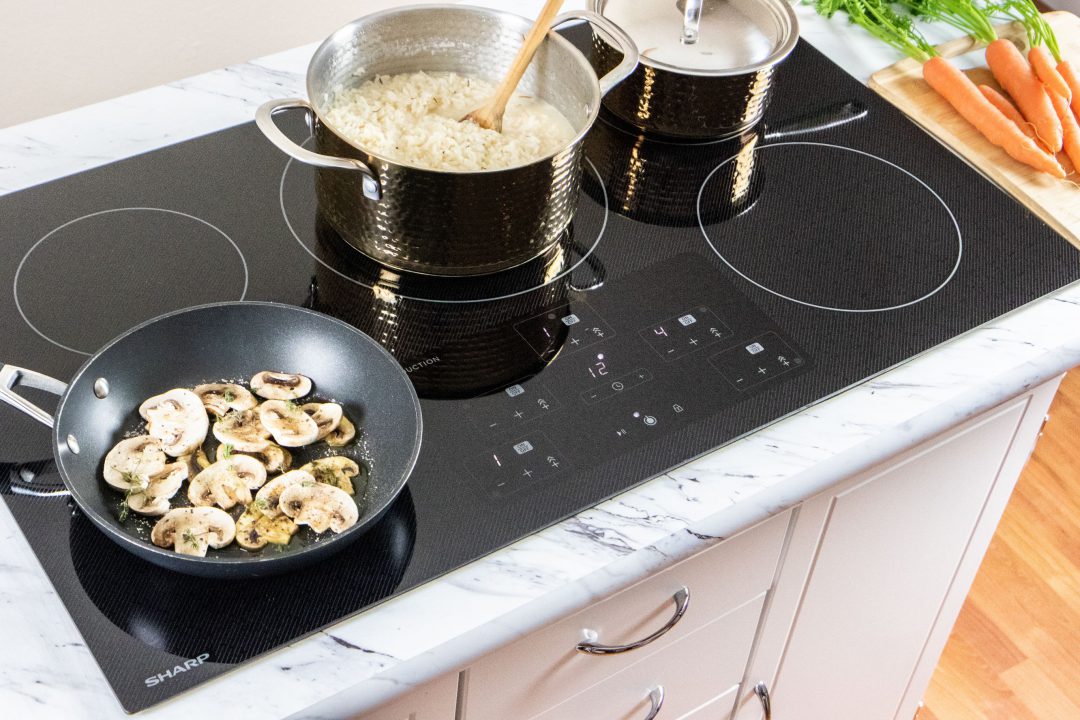Cast Iron vs Nonstick on Induction: Which is Best for Grilling?
Written By James Morgan
For barbecue lovers, choosing between cast iron vs nonstick on induction cooking surfaces is a significant decision. Each material brings its own unique advantages and challenges, particularly when grilling. Understanding these distinctions can enhance your grilling experience and yield mouthwatering results every time. Lets explore the specific merits of each material for induction cooking to see which one comes out on top.

The Pros and Cons of Cast Iron
Why Cast Iron is a Grilling Favorite
Cast iron pans have been around for centuries, and its easy to see why they remain popular. Renowned for their toughness and outstanding heat retention, they excel when it comes to grilling. On an induction stove, cast iron distributes heat evenly and retains it for long periods, which is essential for achieving the perfect sear and golden crust on meats.
One of the standout characteristics of cast iron is its capacity to handle high temperatures. This makes it ideal for creating that mouthwatering char on steaks and burgers. Moreover, with proper seasoning, cast iron pans develop a natural nonstick surface over time, adding to their versatility.
The Drawbacks of Cast Iron
However, cast iron isnt without its downsides. These pans can be quite heavy, making them a bit cumbersome to maneuver, especially for outdoor grilling. They also demand regular upkeep to prevent rust and maintain their nonstick qualities.
Additionally, not all cast iron pans are compatible with induction. It's vital to ensure that the pan has a flat base for optimal contact with the induction cooktop. To learn more about how cast iron works with induction, check out this Staub guide.
The Benefits and Challenges of Nonstick Cookware
Advantages of Nonstick for Induction Grilling
Nonstick cookware provides numerous benefits for induction grilling. The primary advantage is convenience. Nonstick pans are lightweight, easy to manage, and straightforward to clean. The nonstick coating ensures that food releases effortlessly, which is particularly advantageous when grilling delicate items like fish or vegetables.
Another key benefit is that nonstick pans typically need less oil or fat for cooking, making them a more health-conscious choice for grilling.
Nonstick's Limitations
However, nonstick pans do come with their own set of challenges. Generally, they lack the durability of cast iron and can wear out over time, particularly when exposed to high heat. This limits their effectiveness for high-temperature searing, which is often desired in grilling.
The nonstick surface can also be easily damaged by metal utensils. Therefore, when using nonstick cookware on an induction cooktop, it's crucial to use pans designed for induction to ensure proper functionality. For tips on suitable cookware for induction, check out this best brands guide.
Making the Right Choice for Your Induction Grill
When deciding between cast iron vs nonstick on induction, its essential to evaluate your specific grilling preferences and needs. If high-heat cooking and durability are at the top of your list, cast iron might be the more suitable choice. Alternatively, if quick cleanup and ease of use are your priorities, you may lean toward nonstick cookware.
Combining both cookware types can offer the best of both worlds; use cast iron for items that benefit from a good sear while reserving nonstick for more fragile foods. For further insights into using cast iron with induction cooktops, you can visit this heat retention blog.
Conclusion: Enhancing Your Grilling Experience
Ultimately, the choice between cast iron vs nonstick on induction boils down to personal preference and the specific dishes you're planning to grill. Both materials have their unique advantages in a diverse grilling arsenal. With a better understanding of their properties, you can make informed decisions that take your barbecue game to the next level.
For more advice on optimizing your induction cooking setup, consult this How Stuff Works article.

Frequently Asked Questions
Does cast iron work well on induction cooktops?
Indeed, cast iron is compatible with induction cooktops. Its ferrous construction interacts with the magnetic field created by induction, resulting in outstanding heat distribution. Just ensure that your cast iron pan has a flat base for the best performance.
Can nonstick pans be used on induction cooktops?
Yes, as long as they are specifically designed for induction use. Not all nonstick pans work with induction, so be sure to look for an induction-ready label or a magnetic base to guarantee proper heating.
How can I maintain my cast iron pan for induction cooking?
Maintaining a cast iron pan involves regular seasoning with oil to guard against rust and improve its nonstick features. Avoid using soap for cleaning; instead, opt for hot water and a brush. Make sure to dry the pan thoroughly to prevent rust.



